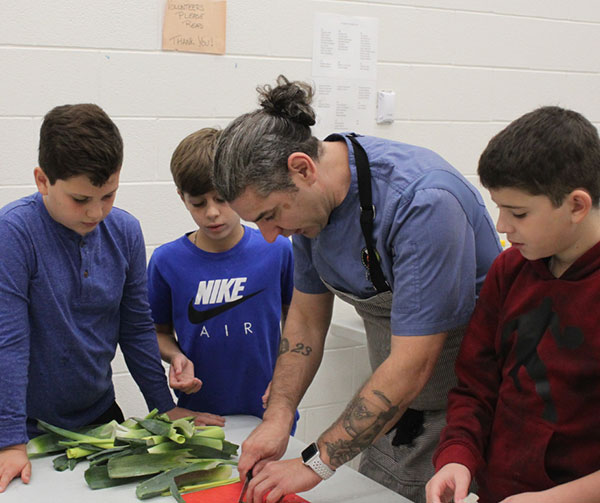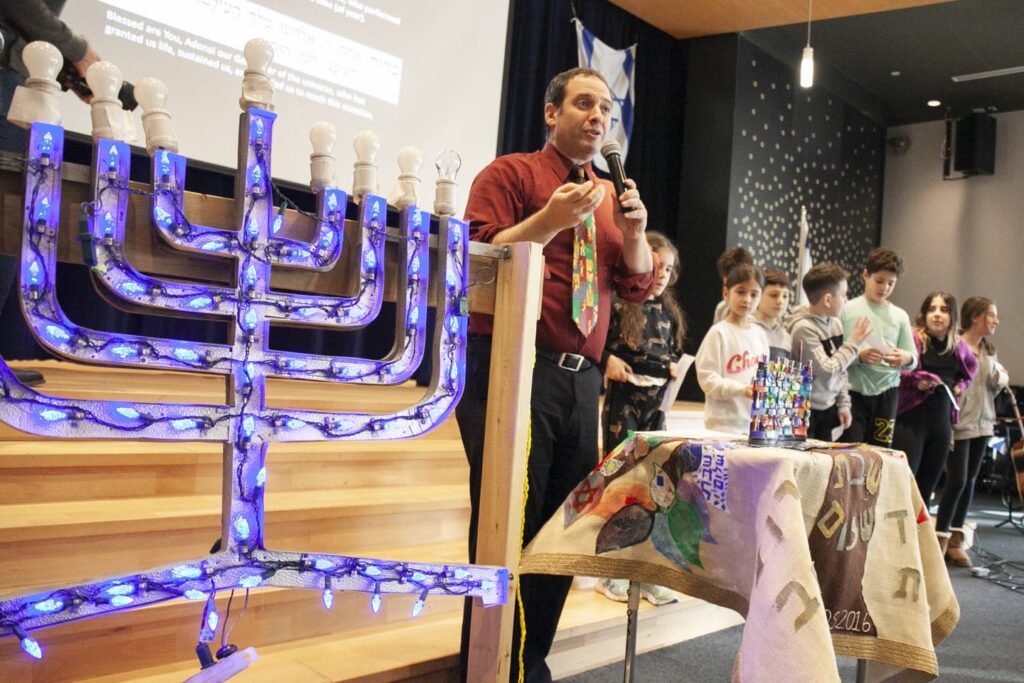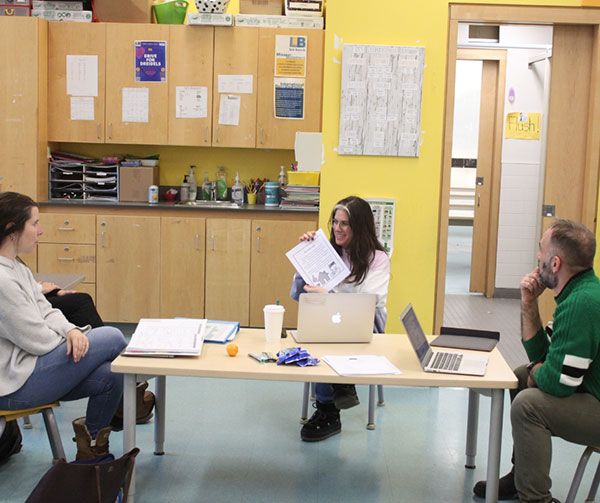Strategic Plan
Our roadmap to harness innovation, embrace diversity and uphold the highest standard of academic and personal development.
Overview
Our Strategic Approach
Our 2022 – 2027 Strategic Plan envisions goal setting from a holistic approach. This provides us with a broader view of our intent and acknowledges that our goals do not stand alone. The integrated design allows us to achieve more, recognizing that each action impacts multiple objectives.
“Our Strategic Plan is represented using a Venn diagram featuring Leo Baeck’s four main objectives and how they intersect. Each strategic decision we make furthers at least two, if not three or all four, of our objectives simultaneously.”
– Eric Petersiel, Head of School
Explore the interactive diagram below by clicking on a section to learn more about each area.
Provide a leading academic program that meets the varying learning needs of our students, enabled by teachers equipped to support differentiated learning.
Inspire students to explore and strengthen their personal Jewish identity and use the principles of Reform Judaism to examine their individual responsibility to the world around them.
Foster a nurturing culture that promotes the seamless intersection between social-emotional wellbeing (SEW), academics and Jewish values. Promote this culture by defining and implementing a SEW framework that supports the overall well-rounded development of students and the wellbeing of our community of teachers and families.
Execute effectively on the most critical supporting functions of the school, including development, marketing and communications, operations, and financial management to ensure long-term sustainability.
Strategic Plan Audio Series
Hosted by Leo Baeck alumnus Toby Gottlieb, this inaugural series features Leo Baeck staff exploring the central pillars of our Strategic Plan.
Part 1 – Social-Emotional Wellness (SEW)
with school Social Workers Jayme Ozier & Lauren Maisels
Part 2 – Academic Excellence
with Dean of Student Services, Danielle Applebaum & Dean of Academic Development/IB Coordinator, Sheryl Faith
Part 3 – Jewish Identity
feat. Dean of Jewish Living Noam Katz
& Tikkun Project Curriculum Development Director Daniel Abramson





